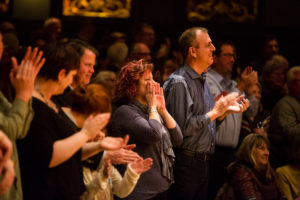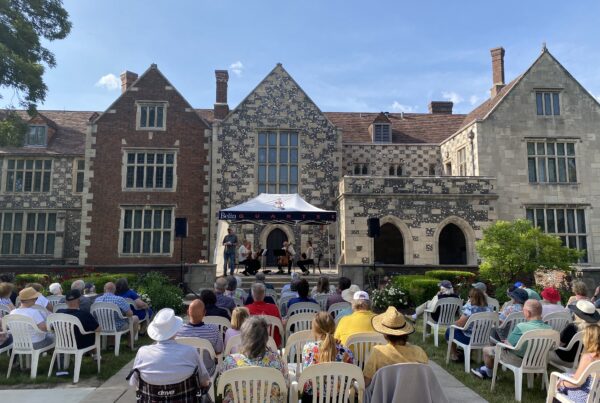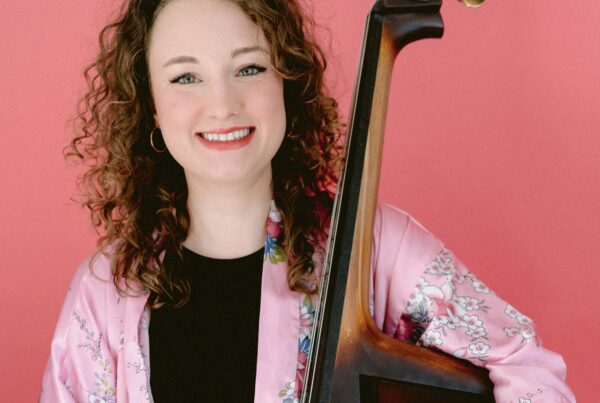Picture this: you are sitting down at a concert and the lights dim while the curtain goes up. The beginning notes start to play, but they are suddenly interrupted by a phone ringing from the person sitting in front of you. No one wants to be that person during a concert, nor have to witness it occur. There are a few simple things to keep in mind that will prevent you from breaking concert etiquette and ensure that you, other audience members, and the performers have the best time possible.
The first thing to keep in mind when thinking about concert etiquette happens before you even arrive to the venue- how you look and what you bring with you. Concert-going attire may vary depending on the venue and performance, but generally you want to look modest and professional, wearing nothing that would draw too much attention away from the show. Think of what you would wear to church or at a nice dinner with your family and that should always work. In terms of what to bring along, less is more. Space is often limited at concert venues, so only bring the essentials in a small bag. Most venues will have rules about food and drink, namely that you cannot bring any of your own, so make sure you check venue rules before packing a snack.
Now that you are prepared to go to the concert, what happens when you arrive? Ensure you have your ticket ready to go when you get there to make the process of getting people in easy and efficient. Arrive early enough to have plenty of time to check-in and make your way to your seats. Try to be in your seats at least five to ten minutes before the show is scheduled to start. It is okay to chat with those around you before the concert begins while the curtains are still down and the lights are on. When you start to see the tell-tale signs of the show beginning to start, make sure to end your conversations and turn your phones or other devices on silent, or preferably, off.
Now that the concert has started, it is important to note how to show proper respect and support during the performance. When the musician(s) or conductor walks on stage, it is customary to clap to acknowledge them. When a conductor’s baton goes up or instruments are staged to begin playing, make sure to quiet down for the music to begin. Most concerts will have a program that you can follow along with as the concert goes. If a musical piece has multiple movements, or there are pieces grouped together in sets, do not clap until after the full piece or set has concluded. When in doubt, follow along with what other audience members are doing and wait to clap until you know it is appropriate.
While the performance is happening, do not talk or whisper to people around you. Even if you think you are being quite enough, it distracts other audience members and can even distract the performers. The same goes for getting up during the performance. Try to remain in your seats during the entire duration. Longer concerts may have scheduled breaks, often an intermission in the middle, where it is okay to get up and move around or use the restroom. If you have an emergency you have to leave for while the performance is happening, try to wait until the conclusion of a piece or after a set is done while the audience is clapping. If you know ahead of time that you may have to leave in the middle, make sure to sit at the end of a row near the doors at the back to prevent distraction.
 When the concert has concluded, make sure to give the performers a warm acknowledgement through clapping, regardless of how you feel about the concert. The performers worked hard to put on a show for you, and it is respectful to show your support. Often at the very end, audience members will stand to recognize the performers while the clapping continues. Follow along with what other audience members are doing on this. Along with clapping, some people will feel the urge to whistle or yell in support- this is generally frowned upon in concert etiquette. In some situations it may be appropriate, but err on the side of just clapping. When it comes to exiting the venue, be courteous of those around you and let the rows file out naturally from those closest to the door outward. Know that it may take a little while, and be patient as you wait your turn to exit. Make sure to leave your seat just as you found it, with no trash or any possessions remaining.
When the concert has concluded, make sure to give the performers a warm acknowledgement through clapping, regardless of how you feel about the concert. The performers worked hard to put on a show for you, and it is respectful to show your support. Often at the very end, audience members will stand to recognize the performers while the clapping continues. Follow along with what other audience members are doing on this. Along with clapping, some people will feel the urge to whistle or yell in support- this is generally frowned upon in concert etiquette. In some situations it may be appropriate, but err on the side of just clapping. When it comes to exiting the venue, be courteous of those around you and let the rows file out naturally from those closest to the door outward. Know that it may take a little while, and be patient as you wait your turn to exit. Make sure to leave your seat just as you found it, with no trash or any possessions remaining.
This may seem like a lot of rules, but if you have common courtesy for other audience members and the performers, you should be adhering to concert etiquette standards already! Being a mindful audience member is important, and ensures that everyone involved has the best time possible. Now that you are a concert etiquette expert, get out there and enjoy your next show!




